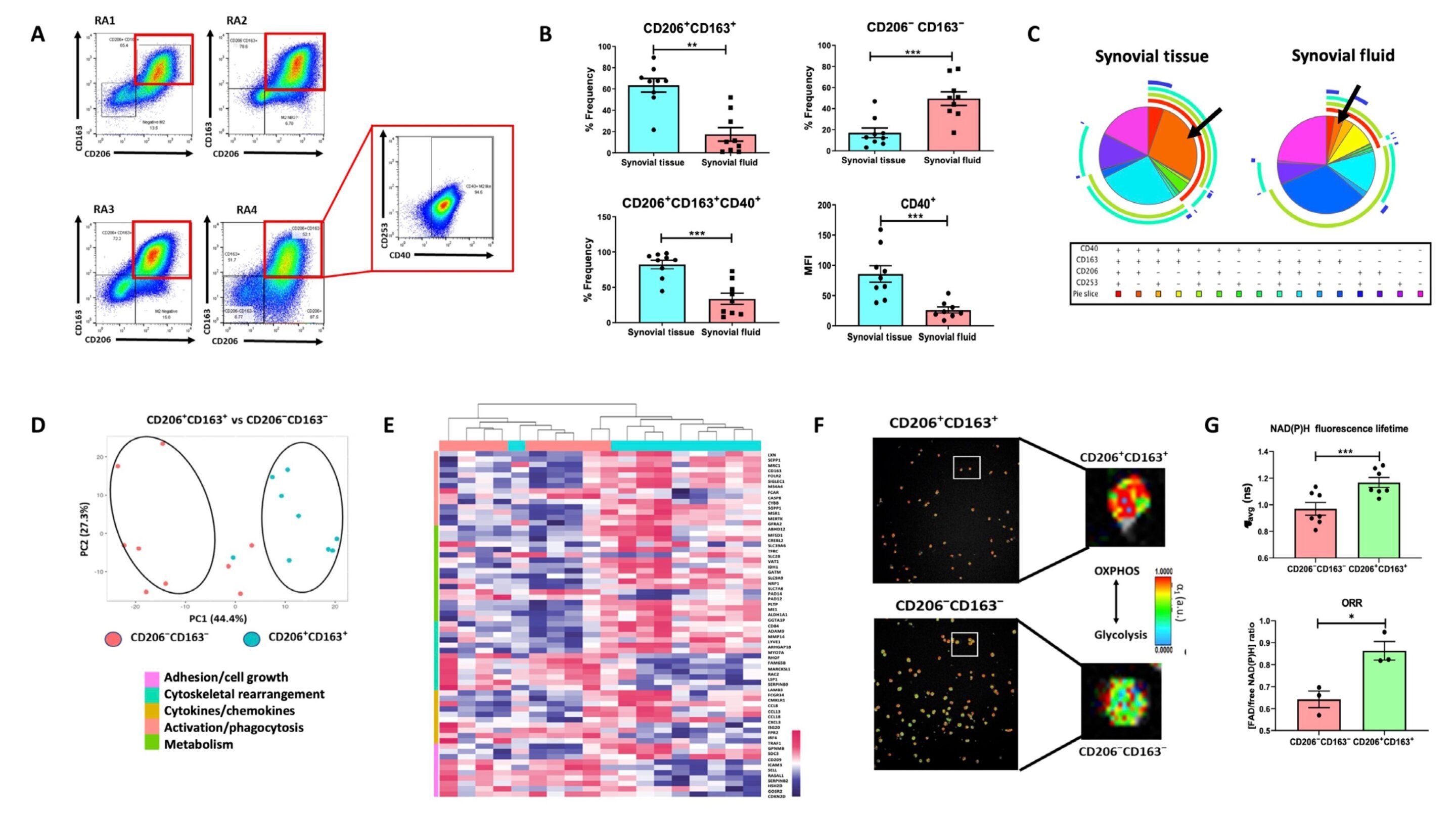Currently, there are no cures for rheumatoid arthritis (RA), which affects 40,000 people in Ireland. The disease costs an estimated $22,000 per patient, per year with an overall cost to the health system of ~$608 million. Only 1 in 4 patients achieve remission and a significant proportion of patients have suboptimal responses or no response at all to current available therapies.
As it is impossible to predict who will develop severe, erosive disease and who will respond to treatment, a trial-and-error approach prevails, leading to potential irreversible joint damage before the patient has received the correct treatment.
The team performed an in-depth investigation of a specific population of cells: the macrophages that reside in the synovium of RA patients, individuals-at-risk of RA, and healthy controls. Researchers demonstrated, for the first time, the presence of a dominant macrophage subtype (CD40-expressing CD206+CD163+) in the inflamed RA synovium, which importantly was associated with disease-activity and treatment response.
Combined, these findings identify the presence of an early pathogenic macrophage cell/gene signature that shapes the RA joint inflammatory environment and represents a unique opportunity for early diagnosis and therapeutic intervention.
Source:
Loss of synovial tissue macrophage homeostasis precedes rheumatoid arthritis clinical onset


